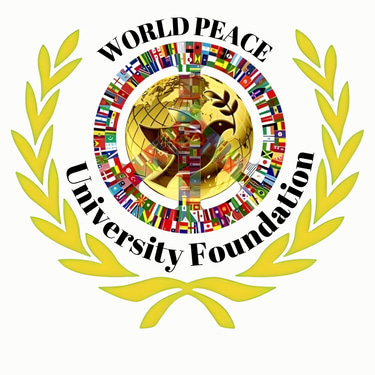A Comprehensive Analysis of the United Nations' Agenda for Sustainable Peace
4/23/20243 min read


Sustainable Peace: An Analysis of the United Nations' Agenda for Peaceful Coexistence
Peace is a fundamental aspiration of humanity, and the United Nations (UN) has been at the forefront of promoting peaceful coexistence among nations. The UN's agenda for sustainable peace aims to address the root causes of conflicts and build a foundation for lasting harmony. In this blog post, we will analyze the key elements of the UN's agenda and explore its significance in today's world.
The Importance of Sustainable Peace
Sustainable peace goes beyond the absence of armed conflict. It encompasses social justice, economic development, and respect for human rights. Without sustainable peace, societies are prone to violence, inequality, and instability. The UN recognizes the interdependence between peace and development, and thus, it has made sustainable peace a priority in its agenda.
By promoting peaceful coexistence, the UN aims to create an environment where nations can thrive and individuals can live in dignity. Sustainable peace is not only crucial for the well-being of societies but also for achieving the Sustainable Development Goals (SDGs) set by the UN.
The Pillars of the UN's Agenda for Peaceful Coexistence
The UN's agenda for peaceful coexistence rests on four pillars: conflict prevention, conflict resolution, peacekeeping, and peacebuilding. Let's delve into each of these pillars to understand their significance:
1. Conflict Prevention
Preventing conflicts before they escalate is a key focus of the UN's agenda. The organization works with member states to identify and address the root causes of conflicts, such as poverty, inequality, and political instability. By promoting dialogue, diplomacy, and mediation, the UN aims to resolve disputes peacefully and prevent them from turning into violent confrontations.
Conflict prevention also involves addressing structural issues that fuel tensions, such as discrimination, marginalization, and lack of access to resources. By promoting inclusivity and social justice, the UN aims to create a foundation for sustainable peace.
2. Conflict Resolution
When conflicts do arise, the UN plays a crucial role in facilitating their resolution. Through its various bodies, such as the Security Council and the General Assembly, the UN provides a platform for dialogue and negotiation. It encourages parties to engage in peaceful settlements and find mutually acceptable solutions.
Conflict resolution also involves promoting transitional justice and accountability. The UN supports efforts to address human rights violations and ensure that those responsible are held accountable. By promoting justice and reconciliation, the UN aims to build trust and prevent the recurrence of conflicts.
3. Peacekeeping
Peacekeeping is one of the most visible aspects of the UN's agenda for peaceful coexistence. UN peacekeeping missions are deployed to areas affected by conflicts to maintain peace and security. Peacekeepers, often comprising military and civilian personnel from different nations, work to protect civilians, facilitate humanitarian assistance, and support the implementation of peace agreements.
UN peacekeeping missions operate under a mandate from the Security Council and work in collaboration with host countries and regional organizations. They play a crucial role in stabilizing post-conflict situations and creating conditions for sustainable peace.
4. Peacebuilding
Peacebuilding is a long-term process aimed at preventing the recurrence of conflicts and promoting sustainable development. It involves addressing the root causes of conflicts, promoting good governance, and fostering social and economic development.
The UN supports peacebuilding efforts by providing technical assistance, capacity building, and financial support to countries emerging from conflicts. It works closely with national governments, civil society organizations, and other stakeholders to promote inclusive and participatory processes.
The Significance of the UN's Agenda for Peaceful Coexistence
The UN's agenda for peaceful coexistence is significant for several reasons:
Firstly, it provides a framework for addressing the complex challenges of our time. Conflicts today are often interconnected, involving a range of actors and issues. The UN's agenda recognizes the need for a holistic approach that addresses the underlying causes of conflicts and promotes sustainable solutions.
Secondly, the UN's agenda emphasizes the importance of multilateralism and international cooperation. It recognizes that no single nation or organization can tackle global challenges alone. By promoting dialogue and collaboration, the UN fosters a sense of shared responsibility for maintaining peace and security.
Lastly, the UN's agenda for peaceful coexistence aligns with the principles enshrined in the UN Charter, such as respect for human rights, equality, and justice. By upholding these principles, the UN promotes a world where every individual can live in peace and dignity.
Conclusion
The United Nations' agenda for peaceful coexistence is an essential framework for promoting sustainable peace in today's world. By focusing on conflict prevention, resolution, peacekeeping, and peacebuilding, the UN addresses the root causes of conflicts and builds a foundation for lasting harmony. As we strive for a more peaceful and just world, the UN's agenda serves as a guiding light towards a better future.
Connect
Email : info@wpufoundation.org
Follow
Stay Connected with Us
+1 (564)243 9111
World Peace University Foundation is 501(c)(3) nonprofit organization EIN - 99-1863511, All donation is tax dedcutable as federal govt rule. ©2024 WPU-F. All rights reserved.
Address
424 W. Bakerview Road, Ste 105-2056
Bellingham, WA 98226 United States
